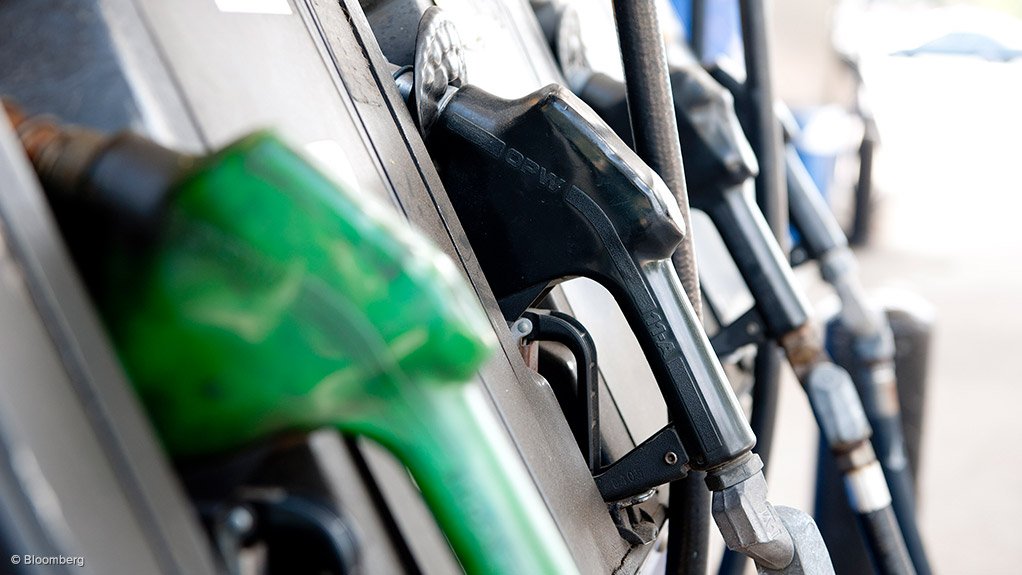Agriculture council says higher fuel price will dampen sector’s performance
The National Agricultural Marketing Council (NAMC) says the increase in the general fuel levy is set to trigger unwelcome economic consequences in the agriculture sector.
The increase in the general fuel levy, which raised petrol and diesel levies by 16c and 15c a litre, respectively, means that the fuel levy in the price structures of petrol and diesel will increase to R4.15/ℓ and R4.02/ℓ, respectively.
With this adjustment in the fuel levy, government intends to raise an additional R20-billion in tax revenue for the 2025/26 financial year.
While this was regarded as a strategic alternative to an increase in value-added tax, the adjustment will impose adverse cost pressures on the agriculture sector, the NAMC states.
Fuel constitutes about 13% of variable input costs in primary production and agri-logistics, particularly in an industry characterised by spatial dispersion and reliance on road transport.
“The timing of the increase in fuel levy and the electricity tariff hikes curtail the benefit of concurrent global oil price reductions and a strengthening rand, thereby limiting the potential cost relief to producers,” the NAMC explains.
The increase in fuel levy has a range of economic consequences that will significantly impact on the agricultural sector, given the sector's inherent reliance on energy-intensive activities.
Moreover, it serves as a catalyst, triggering a cascade of economic repercussions that spread across the agriculture sector through different convoluted paths.
Although the agricultural sector benefits from a fuel rebate scheme that refunds a portion of the fuel levy on diesel used for agricultural purposes, a fuel levy increase will negatively affect the agricultural sector by raising input costs and transportation expenses. The entire food value chain is more likely to be affected by the fuel levy increase, the NAMC says.
The council adds that farm workers will significantly feel the impact of fuel levy increase as their ability to commute daily to and from work will be affected by higher transportation costs, ultimately affecting efficiency and timely productivity.
“Fuel levies have a cascading effect in agriculture by raising costs for agricultural inputs, transportation, and machinery operations, while also straining rural household incomes and changing market dynamics.
“The market supply of commodities requiring fuel-intensive production is more likely to be affected as producers will curtail production or opt for less fuel-intensive practices,” the NAMC notes.
This will have significant impact on food availability and pricing, particularly for lower-income households. Additionally, the prices that customers pay for food are likely going to increase and the marginalised agrarian households may find it more difficult to afford basic food items due to rising prices.
To mitigate the adverse impacts of the recent increase of fuel levy on the agricultural sector, several interventions should be considered.
Firstly, the NAMC suggests that government expand and streamline the existing diesel fuel rebate system to ensure more inclusive access by smallholder and emerging farmers, who often lack the administrative capacity to claim these rebates.
The council also recommends investing in the development of rural transport infrastructure and promoting the use of alternative energy sources such as solar-powered irrigation and electric farm machinery to reduce the sector's dependency on fossil fuels.
Further, the NAMC says investment in research and development can explore fuel efficient production techniques, while more collaborative engagement between government, farmer organisation and agribusiness stakeholders can lead to adaptive policies that mitigates the inflationary effects of fuel levies on food prices – ensuring food security and the sustainability of the agriculture sector at large.
Article Enquiry
Email Article
Save Article
Feedback
To advertise email advertising@creamermedia.co.za or click here
Announcements
What's On
Subscribe to improve your user experience...
Option 1 (equivalent of R125 a month):
Receive a weekly copy of Creamer Media's Engineering News & Mining Weekly magazine
(print copy for those in South Africa and e-magazine for those outside of South Africa)
Receive daily email newsletters
Access to full search results
Access archive of magazine back copies
Access to Projects in Progress
Access to ONE Research Report of your choice in PDF format
Option 2 (equivalent of R375 a month):
All benefits from Option 1
PLUS
Access to Creamer Media's Research Channel Africa for ALL Research Reports, in PDF format, on various industrial and mining sectors
including Electricity; Water; Energy Transition; Hydrogen; Roads, Rail and Ports; Coal; Gold; Platinum; Battery Metals; etc.
Already a subscriber?
Forgotten your password?
Receive weekly copy of Creamer Media's Engineering News & Mining Weekly magazine (print copy for those in South Africa and e-magazine for those outside of South Africa)
➕
Recieve daily email newsletters
➕
Access to full search results
➕
Access archive of magazine back copies
➕
Access to Projects in Progress
➕
Access to ONE Research Report of your choice in PDF format
RESEARCH CHANNEL AFRICA
R4500 (equivalent of R375 a month)
SUBSCRIBEAll benefits from Option 1
➕
Access to Creamer Media's Research Channel Africa for ALL Research Reports on various industrial and mining sectors, in PDF format, including on:
Electricity
➕
Water
➕
Energy Transition
➕
Hydrogen
➕
Roads, Rail and Ports
➕
Coal
➕
Gold
➕
Platinum
➕
Battery Metals
➕
etc.
Receive all benefits from Option 1 or Option 2 delivered to numerous people at your company
➕
Multiple User names and Passwords for simultaneous log-ins
➕
Intranet integration access to all in your organisation




















